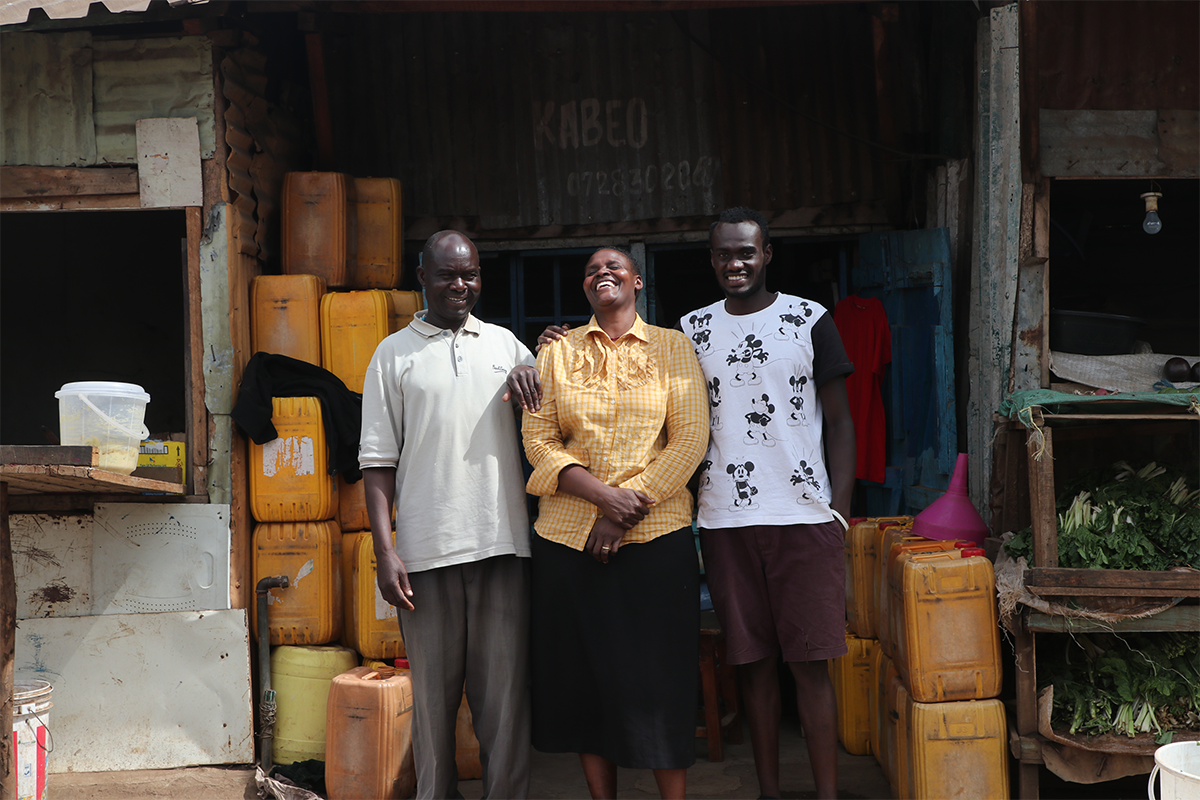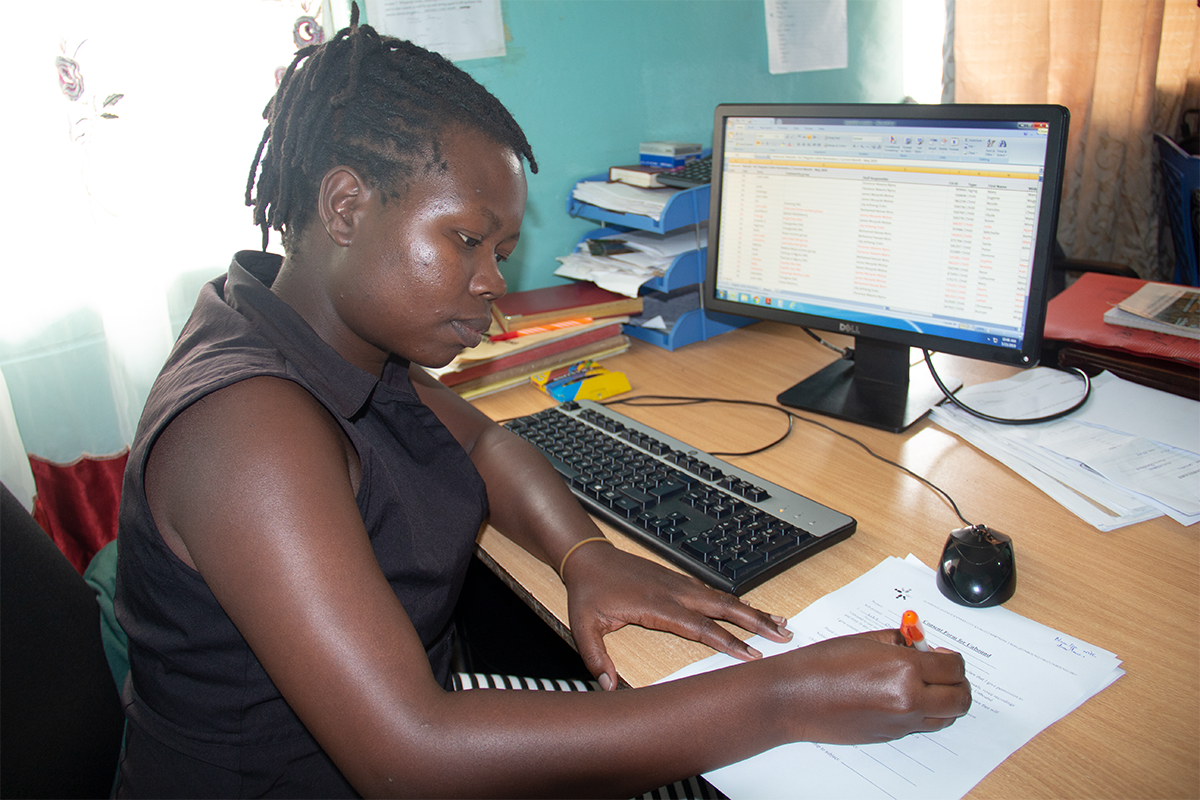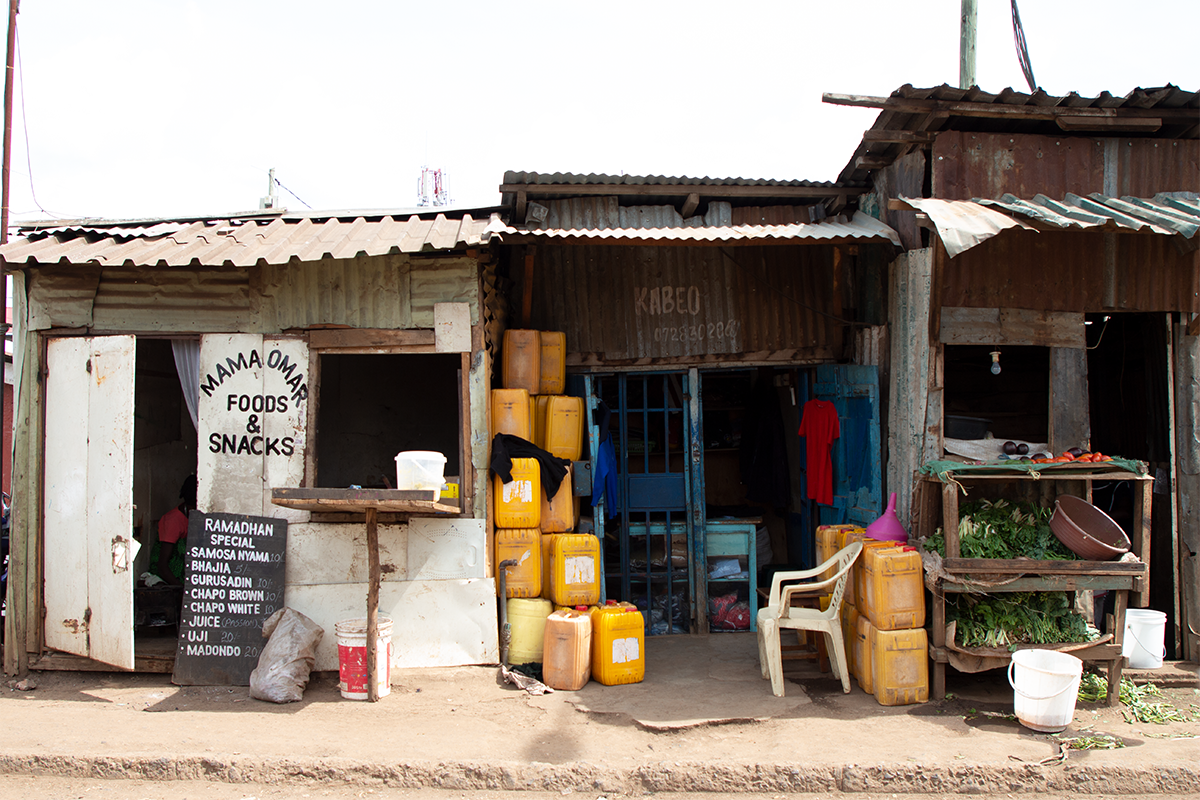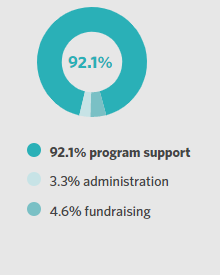Step by step, families in Kibera make progress
Unbound social worker Lily Ouko wants the outside world to see what she sees in Kenya’s largest slum, and it’s more than the challenges residents face.
“The way the outside world sees us is not what we are,” Lily said of Kibera, an informal settlement in the capital city of Nairobi. “You need to look deeper.”
While Kibera is known for problems such as unemployment, poverty, crime, substandard housing, and inadequate road, water and sanitation systems, it’s also a place teeming with life.
The hustle of daily commerce brings vibrance to the streets. Shops in stall after stall sell everything from food to water, clothes, electronics, household items and more. Residents walk along dirt paths leading to paved roads on their way to school or work, while some ride on a motorcycle or bicycle taxi called a boda boda.
Mothers in the Unbound program are among those engaged in the commerce of Kibera. Some have started their own businesses with microloans obtained through an Unbound savings and credit cooperative.
In her role with Unbound, Lily sees firsthand the steps people are taking to improve their situations. She hopes the rest of the world can someday view Kibera through that lens.
“Once you have a positive attitude, you can see what people are doing,” she said.
Maurice (right), who is sponsored through Unbound, stands next to his parents, Tobias and Peris, outside their family business in the Kibera community of Nairobi. The family sells water and clothing at their shop. Peris makes sweaters, pullover tops and school uniforms on a sewing machine she purchased with an Unbound loan.
Unemployment fuels poverty
Lily knows what it’s like to face some of the same challenges families in the Unbound program face. She grew up in Kangemi, a slum community near the Unbound coordinating office in Nairobi. Her family’s house was a single room made of iron sheets with no electricity or running water. Beans were her family’s food staple.
As a child, Lily was sponsored through Unbound and later received a scholarship from the organization. She credits that support over a nine-year period with helping her finish high school and attend college. And she credits the community service she did in the Unbound correspondence department for being able to land a job with the organization. The service fulfilled a requirement for her scholarship and gave her an opportunity to demonstrate her work ethic and develop as a professional.
“Basically, I got the job because of my commitment,” she said.
Poverty caused by unemployment is the biggest obstacle facing people in Kibera, Lily said. Before getting her first professional job with Unbound, she did laundry work and looked for other daily labor to scrape together enough money to pay for her transportation to school.
“I was once in that situation where I didn’t have employment,” she said. “You sit and wonder, ‘What will I do tomorrow?’ Mostly it leads to depression.”
Social worker Lily Ouko works out of the Unbound office in the Kibera community of Nairobi, Kenya. A former Unbound sponsored youth and scholarship student, Lily now works with 242 families and seven mothers groups as they set and document life goals and assess their progress toward achieving them.
Families get personal attention
Lily holds a diploma in social work. In her job with Unbound, she works with 242 sponsored individuals and their families and seven “Support Mothers Groups.”
The SMGs are small groups made up of mothers of sponsored children. The women have opportunities to build supportive relationships with each other, become leaders in the Unbound program, and improve their families’ financial situations through savings and microloans.
Lily works with families as they set and document short- and long-term goals and assess their progress toward achieving them. With sponsorship benefits they receive through cash transfers, made via cell phone, families are empowered to use sponsorship funds to cover their most critical needs.
Education is the number one need of families, Lily said. The sponsorship through Unbound covers anywhere from 25% to 100% of school fees, depending on the educational level and whether families choose public or private school for their children.
Florence Wawira, Unbound’s coordinator in Kibera, said the flexibility afforded to families in how they spend their money makes Unbound sponsorship effective. For example, if a mother budgets for food and receives food but now her biggest need is house rent, some organizations would let her buy only food, Florence said. In Unbound, the decision rests with the mother as the one who knows best concerning her family’s needs.
“The feedback we get from the mothers and families is that Unbound is one-of-a-kind,” Florence said. “Most organizations will not trust them with the money.”
Something else that sets Unbound’s program apart is the personal attention given to families. Lily interacts with families through the Support Mothers Groups, home visits, assisting children in writing letters to their sponsors, and talking with families in the Unbound office when they drop by with a question, concern or just to talk.
Her month breaks down like this:
• The first two weeks center around attending Support Mothers Group meetings and interacting with families there.
• The third week is filing SMG documents and doing other administrative work, along with meeting families in the office.
• The fourth week is conducting home visits, as many as 10 to 15 a day. Every family receives at least one home visit in a year.
“There are times I go for home visits that I cannot capture [the necessary information] because the family’s situation is so dire,” Lily said. “I get emotional.”
In those instances, she puts down her pen and paper and listens to what the family wants to share. She has to make another appointment to finish her work.
Despite the long days and difficult circumstances of the families, the rewards of the job outweigh the challenges. For Lily, it’s all about what the families gain.
“We have given them an opportunity to be empowered,” she said.
Small businesses line this street in Kibera, including the stall in the center that is owned by a family participating in the Unbound program. The business sells water and clothing made by the mother.
















